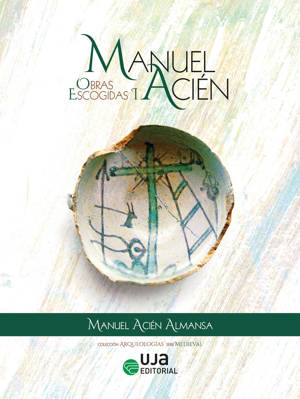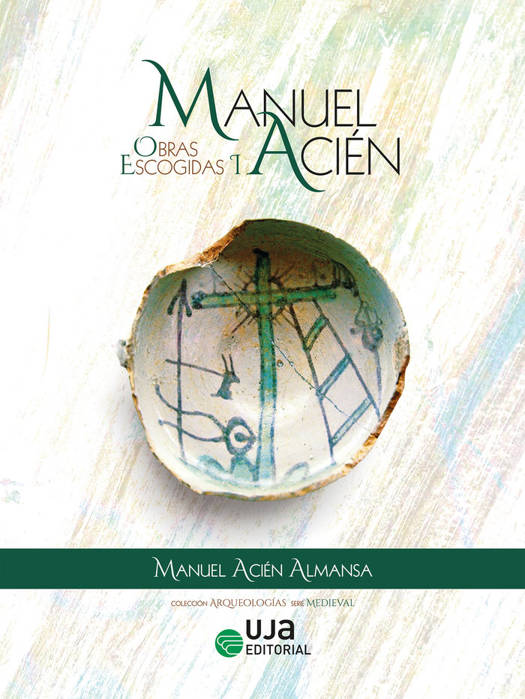
Bedankt voor het vertrouwen het afgelopen jaar! Om jou te bedanken bieden we GRATIS verzending aan op alles gedurende de hele maand januari.
- Afhalen na 1 uur in een winkel met voorraad
- Gratis thuislevering in België
- Ruim aanbod met 7 miljoen producten
Bedankt voor het vertrouwen het afgelopen jaar! Om jou te bedanken bieden we GRATIS verzending aan op alles gedurende de hele maand januari.
- Afhalen na 1 uur in een winkel met voorraad
- Gratis thuislevering in België
- Ruim aanbod met 7 miljoen producten
Zoeken
Omschrijving
En este primer volumen de las obras escogidas de Manuel Acién se han incluido una nueva edición (la tercera) del libro Entre el feudalismo y el Islám. ?Umar ibn Hafsun en los historiadores, en las fuentes y en la historia, y la versión en inglés del artículo Sobre el papel de la ideología en la caracterización de las formaciones sociales. La formación social islámica. El objetivo del primer texto, según el propio autor, era ?la explicación, o propuesta de explicación, de la figura de Ibn ?af??n en el contexto de la fitna. No se trataba de una biografía del personaje, ni una historia de la fitna; en consecuencia, mucho más alejado del objetivo del libro estaba el construir una historia del Emirato?. Pero el texto va mucho más allá de esos modestos objetivos. Como expone Eduardo Manzano en su introducción a este volumen, Manuel Acién enfocó el tema desde un ángulo tan novedoso, que revolucionó las concepciones que se tenían sobre el Emirato. Este es un periodo caracterizado, según el relato de las fuentes árabes, por constantes revueltas de todo tipo que convertían su historia en un relato tedioso e incomprensible. Siendo igualmente incomprensible cómo pudo emerger de ahí el brillante periodo del califato de Córdoba. Hasta que la explicación de Manuel Acién vino a iluminar este oscuro momento de la historia de Al-Andalus al leer dicho periodo como una época de transición, en la que la formación social islámica -sin que el término tenga un significado religioso-, se afirmó frente a las formaciones sociales feudalizantes y tribales, emergiendo la sociedad andalusí. El segundo texto es el complemento imprescindible del primero. En él, M. Acién define y explica la ideología islámica -de nuevo sin ningún significado religioso-, contraponiéndola a la feudal y capitalista. Como se explica en la introducción, estaba previsto publicar esta versión en inglés en un volumen que finalmente no vio la luz, por eso los editores han optado por incluirla aquí. La versión en castellano se encuentra en el II volumen de estas Obras Escogidas.This first volume of the Selected Works of Manuel Acién includes a new edition (the third) of the book ?Between Feudalism and Islam. ?Umar ibn Hafsun within the historians, the sources and history?, and also the article ?On the Role of Ideology in the Characterization of Social Formations. The Islamic Social Formation?.The objective of the first text, according to the author himself, was ?the explanation, or proposed explanation, of the figure of Ibn ?af??n within the context of fitna. It was not a biography of the character, nor was it a history of fitna; consequently, much further from the objective of the book was to construct a history of the Emirate?. But the text goes far beyond these modest objectives. As Eduardo Manzano explains in his introduction to this volume, Manuel Acién approached the subject from such an original point of view that he shaked up the conceptions that were held about the Emirate. This is a period characterized, according to the account of the Arab sources, by constant revolts of all kinds that turned its history into a tedious and incomprehensible story. It is equally incomprehensible how the brilliant period of the Caliphate of Córdoba could emerge from there. Until Manuel Acién's explanation came to illuminate this dark time in the history of Al-Andalus by reading the said period as a time of transition, in which the Islamic social formation -without the term having a religious meaning-, became established before the feudalizing and tribal social formations, emerging so the Andalusian society.The second text is the essential complement to the first. In it, M. Acién defines and explains the Islamic ideology - again without any religious meaning -, comparing it with the feudal and capitalist ideology. As explained in the introduction, it was planned to publish this article in a volume that finally did not see the light, so the editors have decided to include it here. The Spanish version can be found in Volume II of these Selected Works
Specificaties
Betrokkenen
- Auteur(s):
- Uitgeverij:
Inhoud
- Aantal bladzijden:
- 240
- Taal:
- Spaans
Eigenschappen
- Productcode (EAN):
- 9788491593645
- Verschijningsdatum:
- 29/01/2021
- Uitvoering:
- Hardcover
- Gewicht:
- 800 g

Alleen bij Standaard Boekhandel
+ 81 punten op je klantenkaart van Standaard Boekhandel
Beoordelingen
We publiceren alleen reviews die voldoen aan de voorwaarden voor reviews. Bekijk onze voorwaarden voor reviews.












